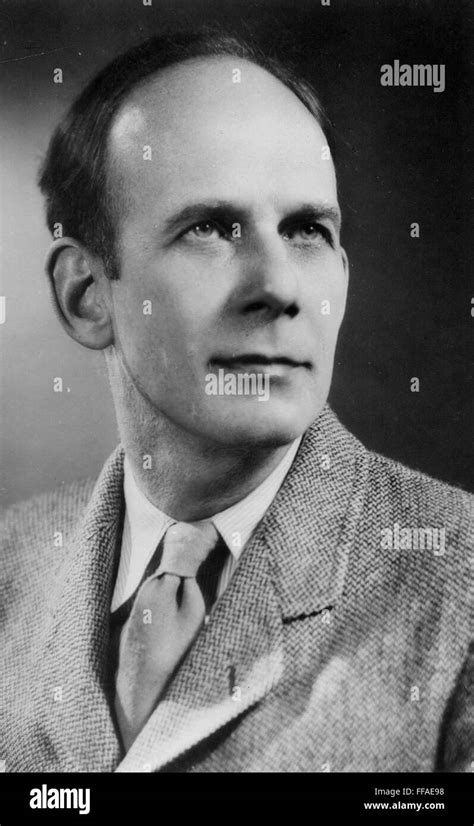A Quote by Vilfredo Pareto
Human behaviour reveals uniformities which constitute natural laws. If these uniformities did not exist, then there would be neither social science nor political economy, and even the study of history would largely be useless. In effect, if the future actions of men having nothing in common with their past actions, our knowledge of them, although possibly satisfying our curiosity by way of an interesting story, would be entirely useless to us as a guide in life.
Quote Topics
Actions
Although
Behaviour
Common
Constitute
Curiosity
Did
Economy
Effect
Entirely
Even
Exist
Future
Guide
Having
History
Human
Human Behaviour
Interesting
Knowledge
Largely
Laws
Life
Men
Natural
Natural Law
Natural Laws
Neither
Nor
Nothing
Our
Past
Political
Political Economy
Possibly
Reveals
Satisfying
Science
Social
Social Science
Story
Study
Them
Then
Us
Useless
Way
Which
Would
Would Be
Related Quotes
The establishment of inner harmony is to be attained neither in the past nor in the future, but where the past and future meet, which is the now. When you have attained that point, neither future nor past, neither birth nor death, neither time nor space exist. It is that NOW which is liberation, which is perfect harmony, to which the men of the past and the men of the future must come.
In the annals of science fiction, where dystopias rule the imaginative roost, Star Trek stood nearly alone in telling us that our future would be better than our past, that our common problems would be solved, that we, as a species, were fundamentally good, and that the universe would reward us for our goodness.
Hindsight, I think, is a useless tool. We, each of us, are at a place in our lives because of innumerable circumstances, and we, each of us, have a responsibility (if we do not like where we are) to move along life's road, to find a better path if this one does not suit, or to walk happily along this one if it is indeed our life's way. Changing even the bad things that have gone before would fundamentally change who we are, and whether or not that would be a good thing, I believe, it is impossible to predict. So I take my past experiences... and try to regret nothing. -Drizzt Do'urden
Surely knowledge of the natural world, knowledge of the human condition, knowledge of the nature and dynamics of society, knowledge of the past so that one may use it in experiencing the present and aspiring to the future--all of these, it would seem reasonable to suppose, are essential to an educated man. To these must be added another--knowledge of the products of our artistic heritage that mark the history of our esthetic wonder and delight.
The quality of everything we do: our physical actions, our verbal actions, and even our mental actions, depends on our motivation. That's why it's important for us to examine our motivation in our day to day life. If we cultivate respect for others and our motivation is sincere, if we develop a genuine concern for others’ well-being, then all our actions will be positive.
The highest knowledge is to know that we are surrounded by mystery. Neither knowledge nor hope for the future can be the pivot of our life or determine its direction. It is intended to be solely determined by our allowing ourselves to be gripped by the ethical God, who reveals Himself in us, and by our yielding our will to His.
There can be no be no better instruction... than that every man who is to deal with his neighbor to follow these commandments. 'Whatsoever ye would that others should do unto you, do ye also unto them,' and 'Love thy neighbor as thyself.' If these were always followed, then everything would instruct and arrange itself; then no law books nor courts nor judicial actions would be required. All things would quietly and simply be set to rights, for everyone's heart and conscience would guide them.
What would happen if history could be rewritten as casually as erasing a blackboard? Our past would be like the shifting sands at the seashore, constantly blown this way or that by the slightest breeze. History would be constantly changing every time someone spun the dial of a time machine and blundered his or her way into the past. History, as we know it, would be impossible. It would cease to exist.
There were so many of us who would have to live with things done and things left undone that day. Things that did not go right, things that seemed okay at the time because we could not see the future. If only we could see the endless string of consequences that result from our smallest actions. But we can't know better until knowing better is useless.
We have not done the things that are necessary to lower emissions because those things fundamentally conflict with deregulated capitalism. ... We are stuck because the actions that would give us the best chance of averting catastrophe - and would benefit the vast majority - are extremely threatening to an elite minority that has a stranglehold over our economy, our political process, and most of our major media outlets.





































